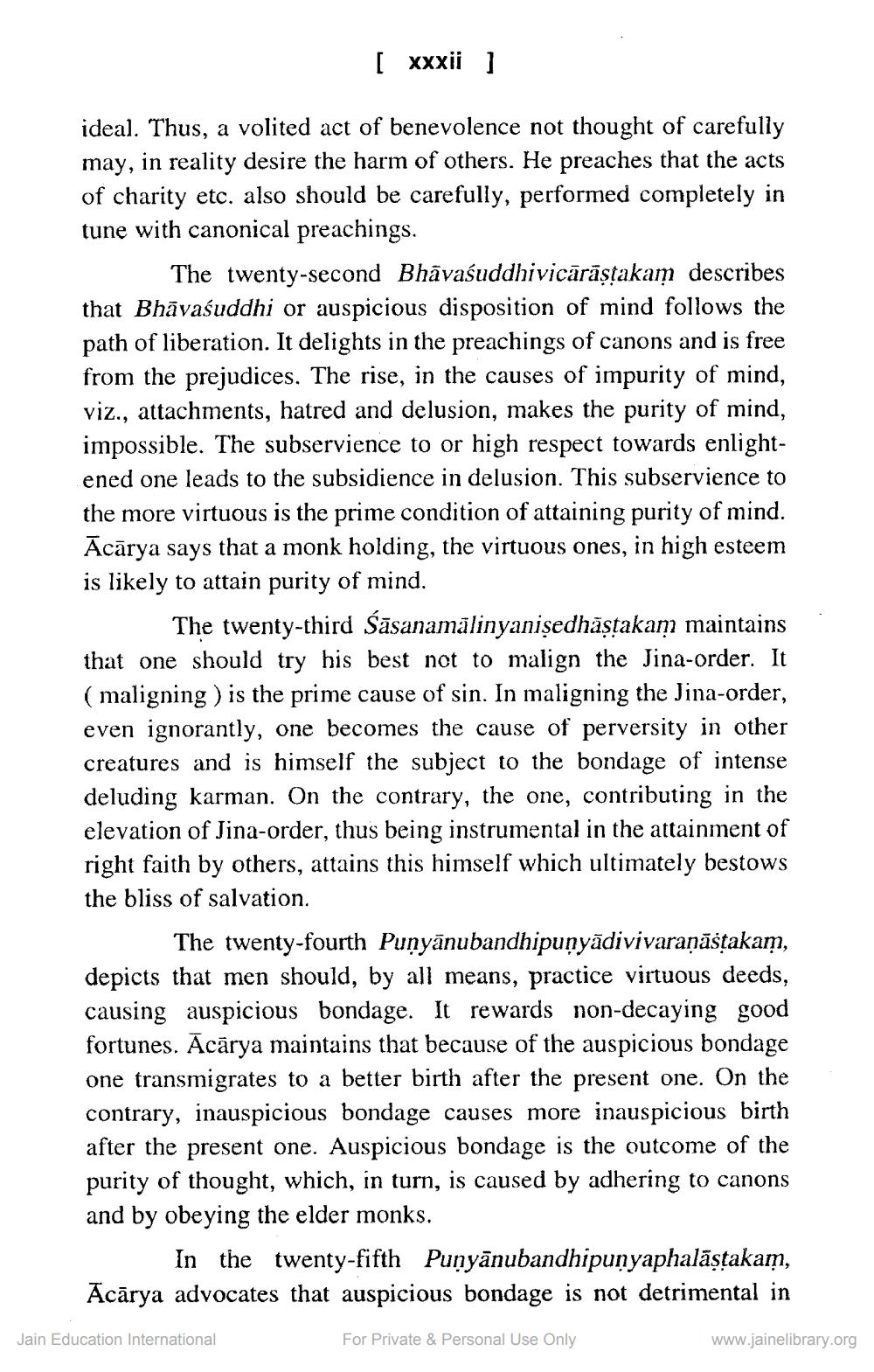________________
[xxxii]
ideal. Thus, a volited act of benevolence not thought of carefully may, in reality desire the harm of others. He preaches that the acts of charity etc. also should be carefully, performed completely in tune with canonical preachings.
The twenty-second Bhāvasuddhivicārāstakam describes that Bhāvasuddhi or auspicious disposition of mind follows the path of liberation. It delights in the preachings of canons and is free from the prejudices. The rise, in the causes of impurity of mind, viz., attachments, hatred and delusion, makes the purity of mind, impossible. The subservience to or high respect towards enlightened one leads to the subsidience in delusion. This subservience to the more virtuous is the prime condition of attaining purity of mind. Ācārya says that a monk holding, the virtuous ones, in high esteem is likely to attain purity of mind.
The twenty-third Śāsanamālinyanişedhästakam maintains that one should try his best not to malign the Jina-order. It ( maligning ) is the prime cause of sin. In maligning the Jina-order, even ignorantly, one becomes the cause of perversity in other creatures and is himself the subject to the bondage of intense deluding karman. On the contrary, the one, contributing in the elevation of Jina-order, thus being instrumental in the attainment of right faith by others, attains this himself which ultimately bestows the bliss of salvation.
The twenty-fourth Punyānubandhipunyādivivaraņāstakam, depicts that men should, by all means, practice virtuous deeds, causing auspicious bondage. It rewards non-decaying good fortunes. Ācārya maintains that because of the auspicious bondage one transmigrates to a better birth after the present one. On the contrary, inauspicious bondage causes more inauspicious birth after the present one. Auspicious bondage is the outcome of the purity of thought, which, in turn, is caused by adhering to canons and by obeying the elder monks.
In the twenty-fifth Punyānubandhipunyaphalāstakam, Acārya advocates that auspicious bondage is not detrimental in
Jain Education International
For Private & Personal Use Only
www.jainelibrary.org




